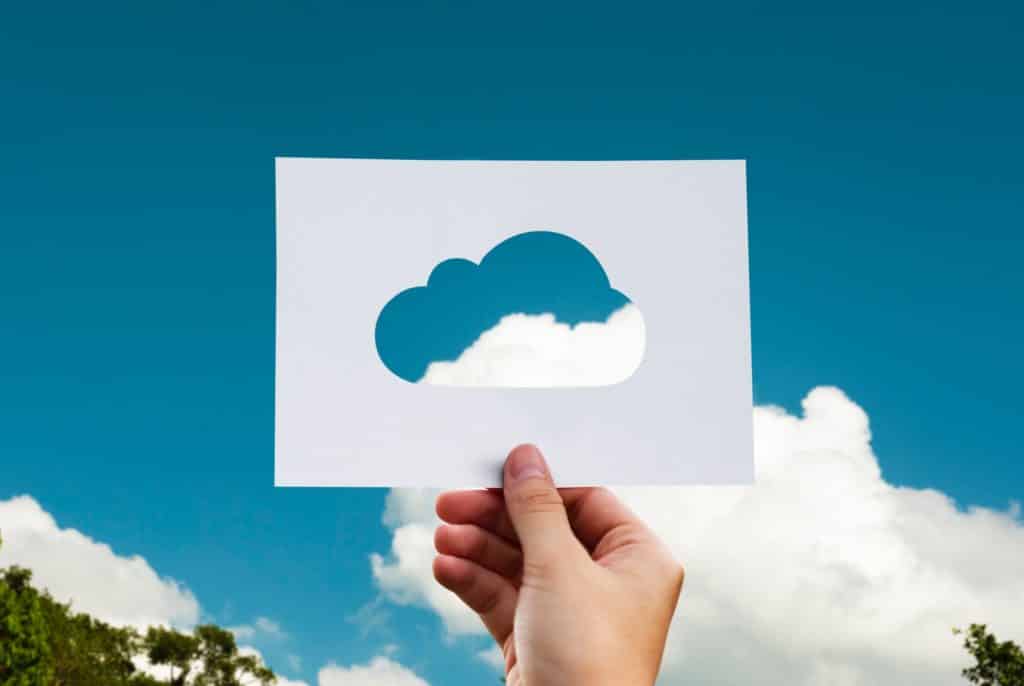
What is Cloud Computing?
What is Cloud Computing?
“Cloud computing” is a phrase many of us hear but may not understand. This is because it encompasses several different systems and services, making it feel ambiguous or confusing.
In this article, we share a simple definition of cloud computing, examples of computing, and discuss why companies use cloud computing.
Simple Definition of Cloud Computing
Cloud computing is the use of off-site systems to help computers store, manage, process, and/or communicate information. These off-site systems are hosted on the cloud (or the internet) instead of on your computer or other local storage. They can encompass anything from email servers to software programs, data storage, or even increasing your computer’s processing power.
The “cloud” is a term that simply means “the internet.” Computing involves the infrastructures and systems that allow a computer to run and build, deploy, or interact with information. In cloud computing, this means that instead of hosting infrastructure, systems, or applications on your hard drive or an on-site server, you’re hosting it on virtual/online servers that connect to your computer through secure networks.
Examples of Cloud Computing
Cloud computing is the use of hardware or software off-site that is accessed over networks for computing needs. Examples of cloud computing depend on the type of cloud computing services being provided.
The main types of cloud computing include software as a service, platform as a service, and infrastructure as a service. Serverless computing, also known as function as a service (FaaS), is also a popular method of cloud computing for businesses.
- SaaS or Software as a Service. SaaS means instead of installing software on your computer, you access the platform online. Examples would include:
- Square, which processes payments online
- Google Apps such as Google Drive or Calendar
- Slack, which allows collaboration and chat between other users
- IaaS or Infrastructure as a Service. IaaS provides infrastructure components such as servers, storage, networking, security, and moreover the cloud. Examples would include:
- Dropbox, a file storage and sharing system
- Microsoft Azure, which offers backup and disaster recovery services, hosting, and more
- Rackspace, which offers data, security, and infrastructure services.
- PaaS or Platform as a Service. PaaS provides computing platforms such as operating systems, programming language execution environments, databases, and web servers. Examples would include:
- Google App Engine and Heroku, which allow developers to develop and serve apps
- Serverless Computing. Serverless computing (also called simply “Serverless”) is simply using a server on the cloud. This offers more elasticity, easier maintenance, and is often more price effective than hosting servers on-site.
Do Cloud Computing Services Have Physical Servers?
Yes. Cloud computing still needs servers to function; the servers are just “virtualized.” This means instead of your application, system, or processes running off a single on-site server, they use multiple servers often in multiple locations connected to each other and your device over secure virtual networks. This allows the cloud computing service provider to provide services to multiple people—and to scale according to client volume—and deliver the service anywhere with an internet connection.
Why Does Your Business Need Cloud Computing?
Your company is probably already using several cloud computing services. For instance, all hosted email providers including Gmail and Outlook are SaaS cloud computing services. So are popular CRMs and automated marketing platforms such as Salesforce, Hubspot, Mailchimp, and more.
However, for many companies, additional examples of cloud computing services include:
- Virtual Machines
- Data Storage
- Backup & Disaster Recovery
- Increasing Bandwidth
- App Development Platforms
- Cloud-Based Servers
- Infrastructure Monitoring & Management
- Build, Host, & Deploy SaaS Services
What are the Benefits of Cloud Computing?
Why should your business consider using cloud computing over traditional brick-and-mortar hosting solutions? This article discusses how cloud computing can save time and money while improving your computing experience.

10 Benefits of Cloud Computing
Is your company considering moving some of your infrastructure to the cloud? If so, you’re not alone. According to Gartner Inc., cloud infrastructure spending increased in 2018 by 31.3% over 2017.
But why are so many companies making the shift from traditional in-house computing? Below we explore 10 benefits of cloud computing….Read More

